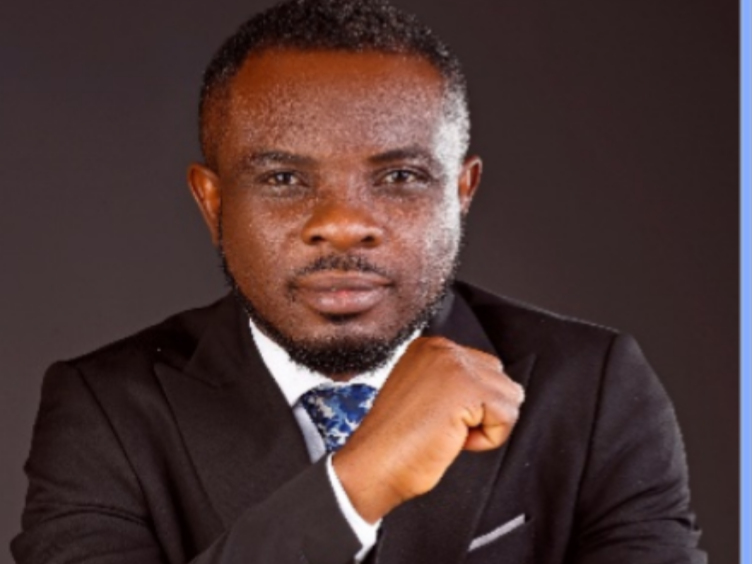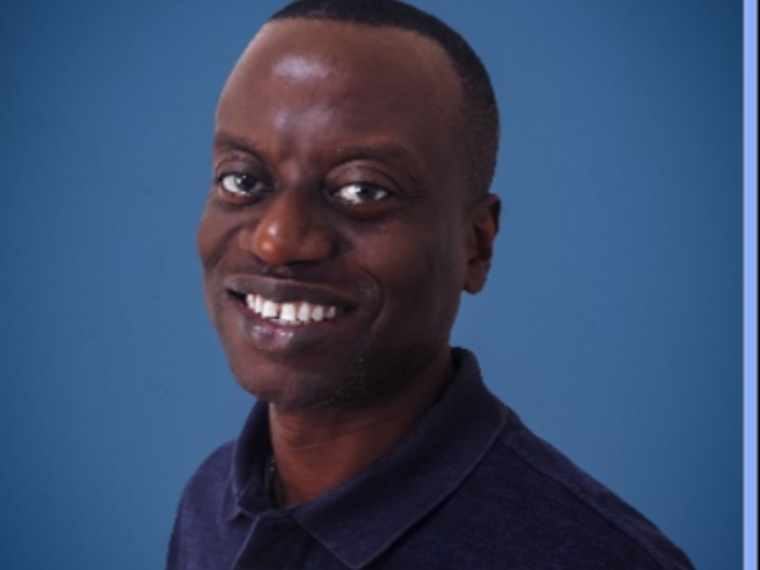THE COURAGE TO BUILD AND MEASURE: Dr. Daere Akobo on Securing Nigeria’s Sovereignty Beyond Oil.
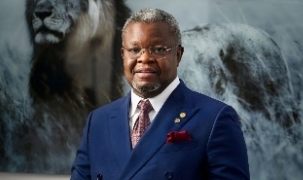
Dr. Daere Akobo, GCEO Pana Holdings
Dr. Daere Akobo, the Chairman and Group Chief Executive Officer of PANA Holdings, a distinguished figure who has successfully built an extensive portfolio of companies spanning crucial sectors like energy, exploration, and digital solutions, offers a powerful and comprehensive perspective on Nigeria’s journey as the nation commemorates sixty-five years of independence. Dr. Akobo’s personal trajectory, moving from humble beginnings in Rivers State to becoming a respected continental voice championing digital transformation, closely mirrors Nigeria’s own substantial potential for national reinvention. Serving also as the Nigeria Country Chair for the African Leadership Council, he provides a unique viewpoint on where Nigeria has been and, more importantly, the urgent direction it must take moving forward.
In reflecting on the nation’s six-and-a-half decades of independence, Dr. Akobo asserts that every entity marking sixty-five years must pause to genuinely assess what has been accomplished with the time granted. For Nigeria, he describes the narrative as one defined by resilience and immense promise, yet simultaneously hampered by numerous missed opportunities. While the nation is blessed with abundant resources and a young, talented population, he identifies the country’s biggest weakness as a consistent failure to construct systems robust enough to outlive the individuals who lead them. Too often, he notes, ambition is utilised as a substitute for concrete execution. Looking ahead another thirty-three years toward the aspirational Vision 2060, Dr. Akobo outlines two distinct possibilities. If Nigeria persists in being fragmented and reactive, the nation risks wasting the potential of yet another generation. However, if the country chooses to wholeheartedly embrace systems thinking—an approach where core elements like governance, education, and industry function as interconnected as the organs within the human body—then Nigeria possesses the capacity to successfully emerge as one of the world’s leading economies. The fundamental question, he argues, is whether the nation possesses the courage required to successfully move from mere rhetoric to definitive action.
Dr. Akobo clarifies that his profound passion as a business leader is fueled by a simple yet potent conviction: the immense ingenuity of the Nigerian people constitutes the country’s greatest untapped resource. He is motivated by the opportunity to construct functional platforms designed explicitly to solve tangible, real-world problems, such as reliably powering homes, successfully digitising economies, contributing to feeding populations, and establishing employment that carries dignity. For him, this extensive effort transcends mere commerce; it is fundamentally about nation-building. The success achieved by PANA Holdings is attributed to an unwavering focus on achieving long-term value, an unrelenting commitment to excellence, and the dedication of an outstanding team composed of Nigerians. The company has embraced resilience, actively learned from every setback encountered, and remained agile within a continuously evolving economic landscape. Crucially, success is measured not solely by financial profits but by the positive impact generated for people, communities, and the nation as a whole.
The organisational philosophy guiding PANA Holdings is rooted in the strategic necessity of establishing “reference architectures”—systems and structures designed to operate with the integrated efficiency observed in nature, where every part supports the whole. Dr. Akobo notes that God created water before fish, and vegetation before animals, emphasising that reference architecture is more significant than simple sequencing; it is the deliberate design of interconnected systems. In practice, this concept applies across vital sectors. Within governance, this translates to implementing digital platforms that enable a seamless flow of essential information across various ministries, thereby eliminating fragmented silos. In agriculture, it mandates linking universities’ crucial crop science research directly to farmers in real time, simultaneously moving toward full value-chain integration that spans from modernised farming techniques and sophisticated out-grower schemes all the way through processing and exports, ensuring that both food security and maximum value addition are successfully achieved. For education, reference architecture means implementing data-driven curricula specifically designed to prepare students for the demands of tomorrow’s global job market, rather than merely equipping them for the jobs of yesterday. Dr. Akobo warns that without this essential reference architecture, even the most well-intentioned national policies are precarious, likened to houses constructed on sand.
Central to Nigeria’s industrial future is energy, and Dr. Akobo maintains that gas represents Nigeria’s definitive bridge to that future. Despite the nation holding some of Africa’s largest gas reserves, domestic utilisation rates remain disappointingly low. Gas is not only significantly cheaper and cleaner for manufacturers compared to diesel, but it is also the crucial energy source required to power domestic factories, create jobs, and enhance national competitiveness. The economic opportunity extends far beyond mere extraction, encompassing the full value chain: necessary processing, extensive distribution networks, and the vital infrastructure needed to guarantee reliable access. PANA Holdings has directly contributed to addressing this challenge; its subsidiary PE Energy Ltd successfully delivered Nigeria’s first-ever comprehensive engineering audit of upstream measurement systems, commissioned by the Nigerian Upstream Petroleum Regulatory Commission (NUPRC). This historic achievement underscored a critical principle: anything that cannot be accurately measured cannot be effectively managed. Since accountability forms the foundational bedrock of investor confidence within the oil and gas industry, extending this rigorous culture of transparency to gas domestication is crucial to empowering manufacturers, stimulating widespread industrial growth, and substantially reducing Nigeria’s detrimental reliance on foreign imports.
Moving into the digital sphere, while data is frequently hailed as the “new oil and gas,” Dr. Akobo raises an important caution about the danger he terms “information obesity”. He explains that in the contemporary environment, the world is often drowning in information but critically starving for genuine wisdom. Raw data, by itself, is inherently useless; it must undergo refinement to become actionable intelligence. Information obesity occurs when people collect too much unstructured data without successfully integrating or practically using it—analogous to consuming food without digestion. While Nigeria possesses copious amounts of data scattered across ministries, industries, and schools, it critically lacks a unified, systemic structure necessary to process this data volume. To counter this, PANA Holdings, leveraging its AKD Digital arm, is pioneering the establishment of Africa’s first Data Refinery. This vital system is designed to gather raw data from crucial sectors—including healthcare, energy, agriculture, and finance—and process it into the precise actionable intelligence required for building lasting national wealth. The core message is explicit: data without effective systems merely constitutes noise.
The structure of PANA Holdings itself, spanning multiple sectors including energy, technology, healthcare, and consumer products, was intentionally designed to address and close essential gaps existing within the Nigerian economy, thereby building a resilient ecosystem that thrives beyond the traditional dependence on oil. This broad diversification mirrors the strategic national imperative for Nigeria to rapidly industrialise and diversify its economic base. PANA Holdings’ specialised subsidiaries fulfill distinct roles: PE Energy delivers complex engineering solutions, Synergy E&P focuses on cleaner exploration and production, AKD Digital constructs necessary data systems, Kari-Care advances e-commerce and healthcare, PANA Infra supplies essential infrastructure, and the PANA Academy is dedicated to developing vital national skills. Collectively, these platforms serve as practical evidence that indigenous African enterprises possess the capacity to compete successfully on a global scale while simultaneously guaranteeing robust local job creation. This approach shows how private enterprise can actively drive national priorities, such as achieving reliable power through decentralisation and the full implementation of existing legislation like the Petroleum Industry and Electricity Acts. Similarly, agriculture demands significantly improved land access, credit, storage, and logistics, alongside greater processing capabilities instead of the current focus on raw exports. Dr. Akobo suggests that by leveraging technology and the energy of the youth, rural communities can successfully become centers of industrialisation.
If Nigeria is genuinely committed to forging a true transformation story over the next thirty-five years, government leaders must prioritise three urgent areas. Firstly, there must be a focus on building strong, resilient institutions designed to outlast the individuals who lead them. Secondly, investment in essential gas and digital infrastructure must be accelerated, recognising them as the core engines required for industrialisation. Thirdly, there must be comprehensive preparation of the Nigerian populace through an education system that places primary emphasis on digital skills, data literacy, and critical thinking. This educational drive must also encompass a national re-education effort: one that effectively triggers national memory, teaches the country’s history honestly, and clearly connects past historical lessons to present realities. A nation capable of remembering its origins is significantly better equipped to accurately chart its future trajectory. These priorities closely align with President Bola Ahmed Tinubu’s Renewed Hope Agenda, specifically its focus on economic diversification, energy security, and human capital development. When paired with genuinely transparent policies and proactive investor-friendly reforms, these actions hold the potential to ensure that by 2060, Nigeria is not simply experiencing growth, but is thriving as a definitive global case study in sustainable development.
Concluding his reflections on this Independence Day, Dr. Akobo offers a powerful, final charge to Nigerians both at home and across the diaspora: Africa is not poor, and Nigeria is certainly not poor; rather, what is poor is the prevalent national mentality. Recalling his personal journey, which involved walking miles as a boy to sell produce—a task he viewed not as his destiny but as fuel for a future—he underscores the deep conviction that has driven him to build significant companies in technology and energy, and to spearhead Africa’s first Data Refinery. As the nation turns sixty-five, Nigerians must universally stop passively waiting for others to determine their narrative. Every single Nigerian, whether engaged in civil society, business, or government, must recognise and actively embrace their role as a co-author of the next national chapter. His final message is straightforward and urgent: a dream that lacks a deadline inevitably becomes a nightmare. Therefore, the nation must not simply dream—it must resolutely build. Nigerians must refrain from merely talking—they must unequivocally act. The imperative is to create the platforms, the functional systems, and the robust institutions necessary to definitively secure national sovereignty. The countdown toward achieving Vision 2060 has already commenced.
The “Price” of Passion, The “Water” of Integrity: How Nnamdi Obi Founded Price & Water Consulting from Adversity to Global Impact
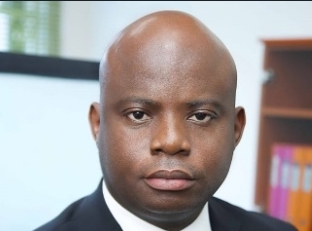
Nnamdi Obi, Founder/CEO Price and Water Consulting Limited
As Nigeria proudly celebrates her 65th Independence Anniversary, The Guardian shines a spotlight on the nation’s most inspiring and award-winning business leaders. Among these distinguished individuals is Nnamdi Obi, the Founder/Chief Executive of Price & Water Consulting Limited, whose remarkable journey from a being seasoned banker to a pioneering entrepreneur embodies the spirit of resilience and innovation that defines modern Nigeria.
Mr. Obi’s professional journey began in the banking sector, where he dedicated well over a decade to some of Nigeria’s foremost financial institutions, including the old Standard Trust Bank (now UBA), Unity Bank, Intercontinental Bank, Diamond Bank, and Access Bank. Those formative years provided an invaluable foundation in relationship management, structured finance and strategic thinking. This robust banking background laid the groundwork for a bold leap into entrepreneurship in 2011, with the establishment of Price & Water Consulting Limited (RC 985171)
A Philosophy Forged in Passion and Integrity
The move from a secure banking career, with its predictable salary and benefits, was a deliberate “Price” paid in pursuit of a deep professional passion. This passion is fueled by a profound desire to see businesses succeed, particularly within emerging markets where challenges are often immense. The name “Price & Water” is more than just a brand; it’s a philosophy. “Price” reflects the sacrifices, discipline, and dedication that drive the firm, embodying Mr. Obi’s personal choice to embrace the uncertainties of entrepreneurship. “Water,” on the other hand, symbolizes transparency and integrity with which the firm conducts its business.
Today, Price & Water Consulting is a solid and reputable brand. Looking back, it was in those difficult moments that the resolve to succeed was truly forged.
Mr. Obi attributes his success to the Almighty God, Jehovah, his dear wife’s support, his mother’s incredible prayers, his resilient professional team members and legal counsel Chidel Onuora ESQ. In addition, continuous learning, invaluable relationships, and an uncompromising commitment to excellence are also key contributors. What truly fuels his motivation is the tangible impact created – helping businesses thrive, empowering entrepreneurs, and contributing to the growth of Nigeria’s economy.
Setting Standards: The Price & Water Difference
Price & Water Consulting has cultivated a stellar reputation for delivering high-quality services to its clients. What truly differentiates the firm is its founding philosophy and approach to client engagement. Mr. Obi explains, “for us, client engagements are not one-off projects but long-term partnerships”. This client-centric approach has led to an impressive 80% of their businesses being referrals. The company maintains its high standards by fostering a culture of professionalism, investing in continuous training, and upholding an unwavering commitment to excellence on every assignment. Their reputation is built on consistency, integrity, result-driven, and with a drive to go beyond borders, doing everything legally possible just to deliver on their assignments.
Price & Water Consulting is a Nigeria–UAE based advisory firm with offices in Dubai, Lagos, and Abuja, providing business development, financial solutions, and strategic advisory services. The firm is a trusted business development service provider, vendor, faculty member, and accelerator to global and local institutions, including Emirates National Oil Company (ENOC, Dubai), Bank of Industry (Nigeria), Access Bank Plc, Lagos State Government, Sterling Bank, Enterprise Development Centre of Nigeria, Abuja Enterprise Agency, Lagos Chamber of Commerce, Abuja Chamber of Commerce, NIRSAL MFBank PLC, amongst many others. Their footprint spans Africa’s key growth sectors, including oil & gas, healthcare, energy, hospitality, infrastructure, manufacturing, and technology. Working closely with leading Development Finance Institutions (DFIs) in Nigeria and the United Arab Emirates, they connect ideas with capital and transform projects into reality.
Impactful Solutions, Transformative Successes
Price & Water Consulting’s core services include financing solutions (debt & equity mobilization), advisory & reports (business cases, feasibility studies, impact assessments), transaction advisory (mergers & acquisitions, joint ventures, strategic collaborations, market entry strategies), guarantees (bank guarantees, letters of credit, as well as all contingent liabilities), and people & performance (corporate training, executive recruitment). These services underpin a series of remarkable success stories that demonstrate the firm’s transformative impact. Highlights in the oil & gas sector include providing transaction advisory/financing for the establishment of the only engineered world-class landfill approved by the Nigerian Upstream Petroleum Regulatory Commission (NUPRC) for the safe treatment of International Oil Companies’ (IOC) hazardous wastes in Nigeria. They have also facilitated and supported the growth of some of the largest local manufacturing companies, provided advisory and financing for the establishment of a 5-star hotel, as well as the establishment of one of the largest jetties in Nigeria.
In the United Arab Emirates, they were selected by the Emirates National Oil Company (ENOC-Dubai) as a trusted consultant/service provider for Africa. Recently, they were appointed as financial consultants that revised the Infrastructure Concession Regulatory Commission (ICRC)-approved Outline Business Case (OBC) for the implementation of the largest EPC+F/Public-Private Partnership (PPP) projects in the health sector. Over several years of practice, exceeding a decade, they have secured guarantees from local commercial banks thus unlocking access to flexible finance for medium and large-scale enterprises. Through their Enterprise Development Institute (EDI) they regularly provide mentorship/training to budding and emerging entrepreneurs (so far, numbering about 5,000) in business management, capacity building, and financial literacy. Often, the training courses are offered free to participants as a Corporate Social Responsibility (CSR) initiative. These achievements have reinforced their reputation as a trusted partner for delivering transformative solutions.
Pioneering the Future of Consulting in Nigeria
Mr. Obi holds a strong perspective on the future of Nigeria’s consulting industry, believing it is poised for tremendous growth. Over the next decade, increased demand for professional guidance is anticipated as businesses and government institutions navigate globalization, technology, and sustainability challenges. Digital transformation, innovation, and a greater demand for specialized advisory services will shape this future. Price & Water Consulting intends to be at the forefront of this evolution by expanding service offerings and footprints, strengthening international collaborations, and leveraging technology to drive efficiency. The goal is to further position the firm as a trusted partner for both Nigerian and global organizations, contributing to the building of resilient, future-ready businesses.
According to the Chief Executive, the priorities for Price & Water Consulting over the next five years are clearly defined: to provide business development and financial solutions through the expansion of the firm’s footprint in Nigeria and across Africa; build capacity in emerging sectors such as private public partnerships, oil & gas and technology; strengthen strategic partnerships with International Development Finance Institutions (DFIs) and global corporations; and develop talent by grooming the next generation of consultants/entrepreneurs. These ambitious goals will be achieved by investing in people, embracing technology, and remaining steadfast to the core values of transparency, integrity, and excellence.
Empowering the Next Generation
For young entrepreneurs and business leaders aspiring to make a similar impact in Nigeria’s economic landscape, Mr. Obi offers invaluable advice: “start with passion but anchor it in structure and discipline”. The willingness to pay the “Price” of sacrifice is crucial, as “success rarely comes without it”. Equally vital is to uphold the “Water” of integrity and transparency, because “without trust, no business can endure”. He further advises the need to build and nurture relationships, stay focused on excellence, and understand that the journey is a marathon, not a sprint. Every challenge should be viewed as an opportunity to grow stronger and wiser.
In 2021, Mr. Obi completed The Consultant’s Toolkit, a certificate course at the Harvard Division of Continuing Education. His guiding mantra is: “Stay Humble, Hungry and Hustle!” He continues to draw inspiration from Mr. Tony Elumelu, who he considers his biggest mentor.
As Nigeria looks to a future filled with promise, Mr. Nnamdi Obi stands as a testament to what passion, doggedness, leadership and unwavering commitment can achieve. “Nigeria at 65 is a story of resilience and opportunity. We are proud to be part of that story,” he affirms. Through strategic vision and impactful partnerships, Price & Water Consulting continues to develop businesses, unlock access to flexible finance, contribute in driving the nation’s prosperity and inspiring a new generation of leaders and future entrepreneurs.
Website: www.priceandwaterconsulting.org, Email:[email protected]
+234 8036399802, +971 50 5544182
OLUSEYE OLUSOGA: Engineering a Systemic Approach to Nigeria’s Capital Market Development
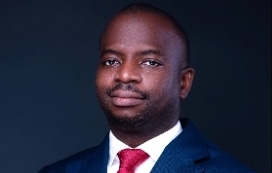
Oluseye Olusoga, the visionary Group Managing Director and CEO of Parthian Partners, stands as a pivotal figure in the evolution and deepening of Nigeria’s financial services industry. As the architect behind the comprehensive Parthian ecosystem, encompassing Parthian Partners, Parthian Securities, Parthian Capital, Parthian Technologies, and Parthian Pensions, his journey from a distinguished electronic engineer to a finance luminary is underpinned by a profound capacity for problem-solving and systemic innovation.
Olusoga’s academic foundation is remarkably robust, beginning with a first-class degree in electronic engineering. His pursuit of knowledge continued with a Master’s in Management Science and Operational Research from Warwick Business School in the UK, followed by a Financial Strategy Diploma, an extensive minor program, from the prestigious Oxford University. He further augmented his expertise with a Master’s in Public Policy and Public Administration from Columbia Business School. This diverse and rigorous educational background laid the groundwork for his unique perspective on financial systems.
His professional odyssey commenced with a remarkable tenure at the European Space Agency, where he served as a Galileo spacacian, an experience he refers to as his “former life” before his “conversion into finance”. His entry into the financial sector was at the reformed Lehman Brothers, specializing in Debt Capital Markets. From Lehman, he transitioned to Citibank, where he underwent an intensive training program as a trader, gaining profound expertise across commodities, foreign exchange, and various credit and debt instruments. His international exposure extended to Eastern Africa, where he delved into financial credit default swaps and index derivatives, eventually co-heading the Options Trading stream for European politics and Africa.
Olusoga’s transition from engineering to finance, a seemingly disparate shift, was, in his view, not a difficult one. He posits that engineering is fundamentally about “solving problems, understanding systems and processes”. He observes striking parallels in financial markets, which also exhibit “causality and effect, with feedback loops just like in engineering”. He illustrates this by explaining how a central bank raises interest rates to curb inflation, a direct feedback loop, or lowers them to spur growth when inflation and growth are low, akin to “fixing an error in engineering”. Similarly, fiscal policy involves identifying and addressing root causes. This analytical mindset allows him to approach financial markets through the lens of engineering systems, focusing on “how things fit together and how to solve problems”.
Upon his return to Nigeria, he identified critical deficiencies within the nation’s financial landscape. He observed a debt market lacking depth, low liquidity, and an underdeveloped fixed-income space. A key missing piece, in his assessment, was the Inter-Dealer Broker (IDB) model, which had proven successful in South Africa and other emerging markets but was conspicuously absent in Nigeria. This realisation sparked the inspiration for him and his partners to create a subsector to address these structural gaps. At the time, the Nigerian capital market was predominantly focused on equities, with most broker-dealers lacking specialized knowledge in fixed income.
The foundational conviction behind Parthian’s inception was the belief that “Nigeria can only be built by Nigerians”, and that robust capital markets are “essential to capital formation”. This deeply held conviction became the core inspiration for establishing the asset management business under Parthian Capital and, subsequently, venturing into the pensions business. Olusoga emphasises that “long-term growth requires deep pools of capital,” highlighting the strategic importance of these ventures.
Parthian Partners initially commenced its operations as an IDB, a strategic move aimed at enhancing market quality and depth. The IDB model plays a crucial role by providing “transparency and price discovery,” which in turn “reduces opaqueness and increases liquidity”. This mechanism significantly boosts investor confidence by offering greater visibility on pricing and ensuring investors are aware of “the true value of their money”. Ultimately, this strengthens the overall capital markets and fosters a more reliable financial ecosystem. He further explains that solving these market challenges through the IDB model directly aids the pensions and asset management industries.
Over time, Parthian has undergone a significant evolution, progressing from its initial role as an IDB to becoming a full-fledged investment bank. This expansion is evidenced by the acquisition of an advisory investment banking license from the Securities and Exchange Commission, alongside licenses for securities trading, broker-dealing, and asset management, all operating under its flagship, Parthian Capital. Demonstrating its commitment to long-term capital formation, Parthian further expanded its offerings in 2025 with the launch of its pensions business, Parthian Pensions.
The company prides itself on a series of “firsts,” including issuing a short-term bond in Nigeria, a substantial ₦20 billion commercial paper, and assisting governments with their receivables. This pioneering spirit is rooted in a corporate culture that encourages questioning “why?” and “why not?”, and a resolute commitment to acting “based on conviction, not just because others are doing it”.
Olusoga identifies “hope, courage, and faithfulness” as the fundamental drivers of his professional passion. For him, “hope” translates into “giving Nigerians hope,” fostering job creation, demonstrating a clear “pathway to success in Nigeria,” and actively building a nation where individuals believe they can achieve their aspirations. “Courage” empowers innovation, daring ventures, and the ability to “take decisions that others may fear”. “Faithfulness” embodies transparency and accountability, particularly in “managing people’s money in a way that they can track and hold you accountable”. He attributes a significant portion of his success to mentors—individuals who provided not just advice but genuine support through “their time, their networks, and their resources”. Parthian’s core values—diligence, integrity, excellence, and teamwork—are guided by a clear ethical principle: “if this action was public, would I be proud of it? If not, then don’t do it”.
Regarding recent economic reforms, such as subsidy removal and FX unification, Olusoga acknowledges that they “come with pain” but asserts their necessity. He notes that while these reforms “initially created hardship,” they have ultimately “brought stability”. He points to tangible benefits, including realistic petrol consumption figures, aligned FX markets, and the restoration of international card usage by banks. This newfound stability, he believes, “allows better planning and strategy” for businesses. For Parthian, this involves rapidly adapting to the “new normal,” communicating its implications to staff, and fostering resilience within the organisation and among individuals. He firmly believes these reforms “will yield dividends,” accepting that “growth often comes with pain, but stability is the reward”.
Looking towards Nigeria’s continued growth, Olusoga advocates for state governments to assume greater responsibility. He highlights their autonomy and capacity to act independently, suggesting they implement contributory pension schemes. The funds generated from these schemes could then be channelled into crucial “infrastructure development,” which would effectively “drive local economies, create jobs, and improve living standards”. He envisions a ripple effect: “If one or two states succeed with this, others will follow, and collectively Nigeria will be lifted”. This aligns with Parthian’s broader strategic vision of becoming a “systemically important financial institution in Nigeria and Africa”.
Beyond his professional endeavours, he is deeply passionate about education, viewing it as “critical to Nigeria’s future”. While Parthian has already supported educational initiatives, there is a strong desire to expand this commitment. The company plans to establish “a proper foundation targeted at education,” with the aim of equipping young people with the necessary skills to be “workforce-ready and to contribute to building a better Nigeria”.
Through his unwavering leadership, strategic foresight, and commitment to core values, Oluseye Olusoga continues to be a driving force in shaping a more robust, transparent, and dynamic capital market in Nigeria, demonstrating that impactful change is achievable through conviction and innovation.
UDEME ETUKEYEN: The Inspirational Leader Empowering Africa’s Future Through Strategic Finance and Leadership Insights
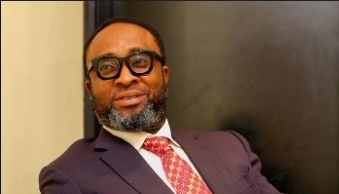
Udeme Etukeyen, CEO Ricchezza Capital Advisor
The demand for innovative and visionary leadership in the face of Africa’s untapped economic potential has never been higher. Ricchezza Capital Advisors Limited has responded to the call, devoted to strengthening the continent’s future. This mission is led by Udeme Asuquo Etukeyen, an outstanding leader and finance expert with over 27 years of progressive experience in banking, investment, and advisory. Ricchezza’s insightful leadership delivers transformative growth solutions aimed at strengthening African enterprises and fostering affluent communities.
Udeme Etukeyen began his remarkable career in 1999 as a Banking Officer at United Bank for Africa (UBA), where he managed energy desk partnerships. He furthered his knowledge of corporate and commercial banking, relationship management, and credit administration at Zenith Bank (2001-2005) and Bank PHB (2005-2006). In 2006, as Regional Director at Integrated Capital Client Services, he led the company’s fund growth from ₦100 million to ₦4 billion in just 18 months, paving the way for the advent of investment clubs. His leadership experience included working as Managing Director/CEO of Integrated Mutual & Maritime Limited (2008), which oversaw maritime services investments, and Ricchezza Onshore Limited (2008-2011), which managed commodities and refined product trades and marine logistics. Udeme’s ambition in Investment Banking was realised in 2014 with the establishment of Ricchezza Capital Advisors Limited.
Beyond the private sector, Udeme has contributed significantly to public service as Special Assistant to the Governor of Akwa Ibom State (2015–2019), focusing on Public-Private Partnership (PPP) development, foreign direct investment, and critical infrastructure projects. This diverse background uniquely positions Ricchezza as a trusted partner in Transaction Advisory in Aviation and Maritime Investments, project management, and strategic advisory across Africa.
A Passion for Lasting Impact and Empowerment
Udeme states his driving force is “a deep-seated desire to make a lasting impact on Africa’s financial and economic landscape”. Witnessing businesses struggle with financing and entrepreneurs lacking mentorship, he realised bridging this gap was essential for Africa’s economic potential. For Udeme, wealth creation is empowerment, ensuring businesses and communities can build sustainable futures. He sees the ripple effect of every financing solution and mentorship: businesses grow, jobs are created, and communities flourish. This passion to democratise access to opportunity remains Ricchezza Capital Advisors’ guiding force.
His leadership philosophy is forged in adaptability and collaboration. He believes rigidity hinders growth in the dynamic financial sector, emphasising the importance to pivot, innovate, and embrace transformation. He asserts that true leadership involves listening and fostering an environment where diverse ideas can flourish, promoting transparency and inclusivity to build profound trust with both team and clients.
Thriving Through Strategic Resilience and Comprehensive Solutions
To survive and thrive in Africa’s volatile markets, Ricchezza was built upon strong foundations of resilience and diversity. The firm employs key strategies including:
Diversifying Services: Beyond traditional financial advisory to Leadership insights and Strategic Communications; Ricchezza offers private equity deployments, investment readiness support, and capacity-building training programmes.
Client-Centric Relationships: Ricchezza views clients as indispensable partners, aligning its success with theirs.
Investing in Talent: Consistently nurturing skilled, adaptable, and passionate individuals committed to Africa’s growth maintains Ricchezza’s competitive edge.
Ricchezza’s mission:
Its mission is to democratise wealth opportunities and unlock the immense potential of African businesses, especially Small and Medium Enterprises (SMEs), which form the indispensable backbone of the economy. The firm empowers SMEs with resources, guidance, and advisory support through a multi-faceted approach:
Deploying Private Equity & Fund
Management: Investing directly in high-growth businesses and managing funds to help companies scale and create jobs.
Tailored Advisory & Business Solutions: Providing bespoke financial advisory, management consulting, and strategic business solutions balancing profitability with long-term sustainability.
Insurance & Risk Management: Offering expert insurance brokerage services to safeguard investments and ensure operational continuity.
Capacity Building & HR Advisory: Equipping entrepreneurs and executives with critical skills in financial literacy, corporate governance, and operational excellence.
Strategic Communications & Perception Management: Guiding clients to strengthen market positioning and refine stakeholder engagement. In essence, Ricchezza nurtures businesses, ensuring every supported enterprise contributes significantly to wealth creation and economic development.
What Truly Differentiates Ricchezza?
Ricchezza’s unique value proposition rests on three core factors:
Personalised Service: Every client engagement is bespoke, tailored to individual goals and challenges.
Sector Expertise: Deep understanding of key sectors like aviation, maritime, energy, fintech, and infrastructure provides a significant edge.
Commitment to Africa’s Growth: Unlike firms solely focused on financial returns, Ricchezza’s model links its success to broader socio-economic impact in the communities.
Vision for the Future: Regional Expansion and Global Impact
Over the next five years, Ricchezza Capital Advisors has set ambitious goals:
Regional Expansion: Strengthen its footprint in Central, South and West Africa through local partnerships.
Scaling Private Equity Investments: Significantly grow its advisory and private equity portfolio in high-growth sectors such as technology, creative economy, tourism, renewable energy, and healthcare.
Expanding Capacity-Building Programmes: Reach more entrepreneurs across the continent with training and mentorship.
Udeme also offers vital advice for young Nigerian entrepreneurs, stressing success requires attributes beyond ambition: Resilience, Innovation, Financial Literacy, Networking, and Adaptability. By embodying these qualities, young entrepreneurs can achieve success and contribute to Nigeria’s economic fabric.
Ricchezza Capital Advisors, under Udeme Asuquo Etukeyen’s visionary leadership, is more than a financial firm; it is a catalyst for sustainable development, building resilient African businesses and empowering communities for a brighter, more prosperous future.
Partner with Ricchezza Capital Advisors today and be an integral part of Africa’s transformative growth story.
Website: www.ricchezzacapital.com
Email: [email protected]
DR. THOMAS O. OGUNGBANGBE: The Maverick Behind CITA—Nigeria’s Aviation Fuel Game-Changer
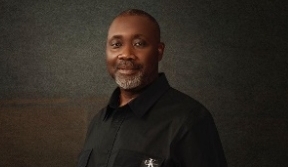
Dr. Thomas O. Ogungbangbe, CEO/Pioneer Chairman CITA ENERGIES
Walk onto any busy Nigerian runway and there’s a good chance CITA has had a hand in keeping that aircraft moving. The company’s footprint stretches across 17 Airports —covering all the six geopolitical zones—and its standards rival the world’s best.
At the helm is Dr. Thomas O. Ogungbangbe, a leader who didn’t just read the playbook; he rewrote it. Building Global Standards from Nigerian Soil. Before oil and gas, Thomas cut his teeth with the American Pharmaceutical giant- Pfizer Products PLC and later moved to Banking.
The pivot came in the early 2000s, when he stepped into oil & gas and quickly rose to pivotal roles as the last aviation fuel manager at NOLCHEM (a Shell–FGN partnership), followed by TexacoChevron cum MRS/Corlay Group as the Group Aviation Fuel Manager for across West and Central Africa.
He also co-founded the Aviation Fuel unit of Asharami Synergy (Sahara Group), where he served as aviation fuel Operations; Marketing and Managing Executive at different times. Those years laid the groundwork for an audacious idea: a Nigerian company that could match, even out-execute, the majors.
Cracking Nigeria’s Jet-Fuel Code
Two decades ago, Nigeria’s aviation fuel market was broken. Demand was elastic, supply wasn’t; outages hit like clockwork—every six weeks, followed by 2–3 weeks of waiting. Local refineries couldn’t produce jet fuel, so imports ruled the day. Airlines lost confidence; many erstwhile technical landings opted to refuel in neighbouring countries, costing Nigeria hard currency and prestige.
Thomas saw a path others missed: as pool imports through joint-user installations, commingle for scale and quality, and then build out independent infrastructure—fast. That blueprint became CITA, a pure-play operator designed to compete head-to-head with the era’s giants—Conoil from Shell; Mobil; AP from BP/AP/Forte; NNPC/OVH/Oando from AGIP; MRS from Texaco-Chevron; Total—and win on reliability.
Built for Global Standards—And It Shows
CITA’s claim is simple: the Jet A1 you get in Lagos or Abuja should meet the same bar as Heathrow or Atlanta. That’s not a slogan—it’s operations. The company is a strategic partner to IATA, and Dr. Ogungbangbe—a certified inspector—is qualified to audit live fuel farms worldwide.
On the home front, CITA manages a pivotal fuel farm for Nigerian Air Force and offshore aviation fuel system maintenance for Chevron Nigeria Limited.
CITA today aside being Numero uno in terms of physical infrastructural presence also hold a top three position by volume—about 10% market share—in a field that has grown from 6 players to 40+.
The geographical spread? Unrivalled. Value creation? Top notch. The discipline? Non-negotiable. “Integrity is not a line item—it’s our operating system.”
Reforms, Risks, and the Runway Ahead
Market reforms—fuel subsidy removal and forex liberalisation—did more than move the needle. They levelled the playing field, ending the era when access to dollars decided winners. For CITA, that meant finally supplying many more international airlines at scale. It also helped choke off the perverse incentive where subsidized household kerosene could sneak into aviation supply chains.
Add the emergence of the Dangote Refinery, and its ability to crack jet fuel albeit, the first in Nigeria’ history; the long-term picture tilts toward consistent local supply. In short: benchmarks are global, supply is stabilizing, and CITA is built for this moment. Next stop? Operations in the United Kingdom—another proof point that the company’s systems travel well.
Values That Compound
Ask Thomas what scaled CITA and he will talk less about pipelines and more about people. The company’s core is commitment, integrity, transparency, and accountability woven with passion and skill—plus a knack for building cohesive, high-performance teams. Those values helped liberalize the sector, broaden competition, and show—conclusively—that a Nigerian firm can build and run world-class aviation infrastructure.
Impact Where It Matters
Beyond its commercial triumphs, CITA Energies is deeply committed to Corporate Social Responsibility (CSR), making significant impacts across various communities. In education, the CITA Foundation runs a scholarship scheme, sponsoring numerous students up to master’s level and supporting four PhD programs. Humanitarian efforts include donating 1,000 bags of 50kg rice and 600 bags of beans across 30 local government areas of Osun State during the 2016 economic crisis, alongside providing over 20,000 vials of pain injections to hospitals. CITA’s prison welfare initiatives have seen the company supply sanitary pads for a year to all female inmates in Kirikiri and Ilesa prisons. Community development is evident through donations of transformers, construction of access roads (including a 300m macadamized road with drainage at Kano airport costing over ₦300 million). Furthermore, CITA provided crucial bespoke Jet A1 fuel facilities in non-airport locations even in challenging regions that are hazardously inclement.
The company consistently supports communities where it operates, employment and training of locals, maintaining access roads and engaging in joint road maintenance efforts.
The Edge
Because aviation fuel is unforgiving. A third of airline operating costs can be fuel; reliability makes or breaks schedules—and reputations. CITA built a company that thinks like a global operator and executes like a local specialist. That’s why the brand now stands for something bigger than commerce: confidence.
FAST FACTS — CITA
Coverage: Largest spread in 17 airports, all six geopolitical zones
Market Position: Top three by volume; ~10% share
Defense Link: Manages the Nigerian Air Force Fuel Farm
Global Readiness: Strategic partner to IATA; UK airport operations launching
Leadership: Founder/CEO Dr. Thomas O. Ogungbangbe—ex-NOLCHEM/Conoil; TexacoChevron/MRS; co-founder, Asharami Synergy Aviation (Sahara Group); certified inspector for running fuel farms. CITA didn’t wait for perfect conditions. It built systems that made Nigeria’s skies more dependable—and proved a homegrown company could set global standards.
Now, with reforms tailwind and expansion on deck, CITA isn’t just fueling flights. It’s fueling a new narrative of what’s possible. A RENEWED HOPE.
MR SEYI ASAGUN, FICA: A TRANSFORMATIONAL BUSINESS LEADER, AN INNOVATIVE TECHNOCRAT AND FINANCIAL EXPERT EMPOWERING INDIVIDUALS AND MSMEs IN NIGERIA
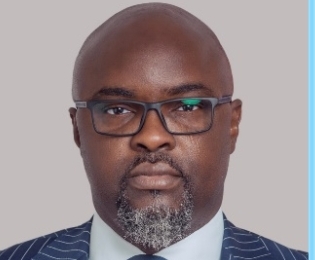
Mr Seyi Asagun, FICA, MD/CEO Entourage Integrated Trust Limited
For Nigeria to achieve rapid economic growth and attain her position of honour in the comity of nations in critical areas of human endeavours, professionals, entrepreneurs and technocrats like Mr. Seyi Asagun, the Managing Director and Chief executive Officer of Entourage Integrated Trust Limited remains one of those that the country looks up to.
Mr. seyi Asagun is a financial executive, microfinance strategist, an accomplished entrepreneur, technocrat, a transformational business leader and outspoken advocate for inclusive lending in Nigeria. With over twenty (20) years in financial services. He has pioneered inclusive lending model that have supported over one hundred and fifty thousand (150,000) Micro, Small Medium Enterprises (MSMEs) in the country especially in underserved and informal sectors.
Mr. Seyi Asagun studied Mathematics and Statistics at Kaduna Polytechnic. As a brilliant student and a lover of education, he obtained his first degree in Economics from Obafemi Awolowo University (OAU) and proceeded to a Business School, Netherlands, where he obtained his Masters degree in Business Administration (MBA).
Established in July 2014, Entourage Integrated Trust Limited is a Nigerian financial services company specializing in microfinance lending, leasing and investment solutions. The organization operates in twenty-nine (29) states of the federation with the branches strategically located across the country with the corporate head office in Lagos.
With the vision and mission statements “To provide high quality financial services to individuals and Small and Medium Enterprises (SMEs)” and with the mission, “To create accessible, flexible and tailor-made loan packages supported by easy repay service.” In order to achieve this articulated vision and mission and impact on the lives and businesses of Nigerians, the company’s core services include: microfinance and lending. Infacts, the company provides loans to businesses and individuals to solve their most pressing needs; supports customers throughout the loan process and ensures judicious use of the fund effectively. The company also advises customers on how to make good use of the loans.
In addition, the company is also into leasing services, offering asset leasing options to clients, enabling them to acquire necessary equipment or assets without the burden of full upfront costs. As a future looking organization, the company involves in investment solutions; engaging inventive capital activities to support SMEs and growing business, contributing to economic development.
Mr. Asagun is not only an innovative and inspiring business leader in Nigeria but he is also a result oriented professional with capability to translate vision into reality. Indeed, since he founded Entourage Integrated services Limited about eleven years ago, he has proved to all and sundry that he is a man of ethical conduct, accountability and with strong support for Micro Small Medium enterprises (MSMEs) growth and development in Nigeria. Infact, he has designed and led initiatives that support thousands of small businesses and continues to contribute to financial policy, conversations, working closely with stakeholders’ regulators and community leaders. Indeed, he runs an online publication substack, The Seyi Asagun Brief, where he shares sharp practical insight on fixing finance, leadership, and growing resilient in small businesses. He has been featured in many dailies and continues to appear in podcasts and industry events as a thought leader.
As a transformational business leader with determination to touch and transform more businesses in the country, he has put in place strategies, policies, professionals and ICT facilities to facilitate and ensure consistent quick delivery services.
In recognition and appreciation of his commitment to the growth of Micro, Small and Medium Enterprises (MSMEs) and enormous contribution to socio-economic development of Nigeria, Mr. Seyi Asagun has been honoured by many organizations and institutes within and outside the country and these include: A Fellow of National Institutes of Credit Administration (FICA); Named among The Guardian’s Top Fifty (50) Entrepreneurs of the Year; Received, The UN-POLAC Award for Peace Practice and Financial Management just to mention but a few. Indeed, he is a sought after speaker and thought leader, featured across BusinessDay, Channels Television, Nairiametrics and News Central.
It is imperative to mention that the above stated achievements, legacies and enormous contributions to the growth and development of MSMEs in the country has made Mr Asagun a seasoned economist, an accomplished entrepreneur, an agent of positive change and an articulated business administrator. Therefore, as Nigeria celebrates her sixty-five (65) Independence anniversary, Mr Seyi Asagun has been recognized as one of the transformational and impactful business leaders in Nigeria.



